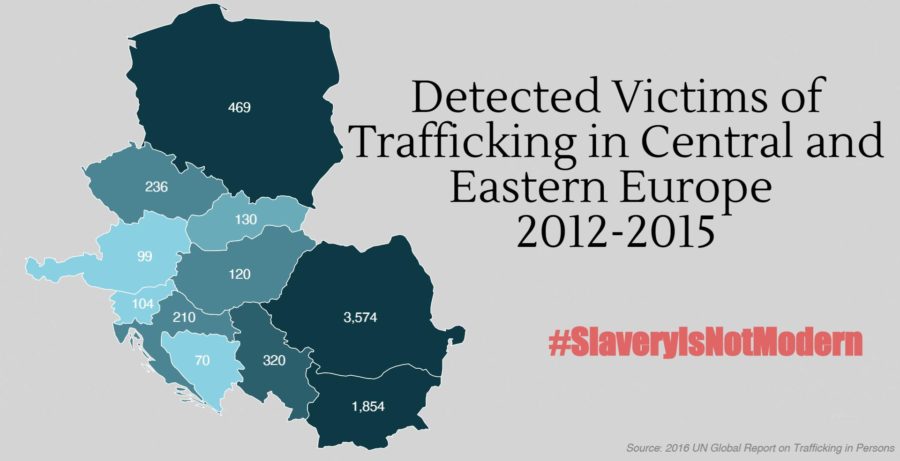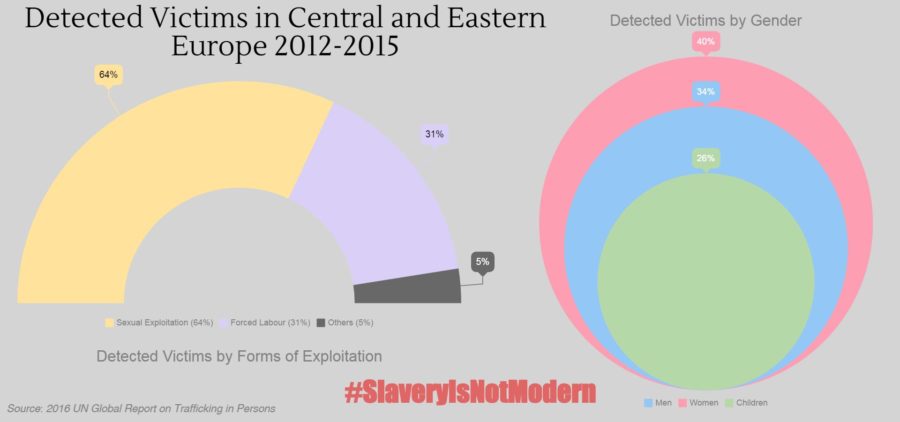7th February 2017 Vienna, Austria
Vienna: tackling modern slavery – concrete action

I wrote in my blog about modern slavery last month that “modern slavery is happening throughout the world, including in Europe, on a large scale”.
So what are we doing about it?
More than 200 years ago William Wilberforce led Britain in the fight against slavery – opening the eyes of the world to the horrors and indignity of human servitude. Today, the world is still grappling with tackling modern-day forms of slavery. Within Europe, victims can be found in nail bars, car washes, in sheds, fields and brothels.
Exploitation is taking place on a daily basis. Recent estimates suggest that there are between 10,000 and 13,000 victims in the UK alone and 45 million across the world. These are vulnerable people who have travelled believing they were heading for legitimate jobs to find they have been duped, forced into hard labour, and then locked up and abused. Innocent people are being forced into prostitution, often by people they thought they could trust.
Recently, a 7-year-old boy was found and rescued in North London. He had been held as a domestic slave. Other children are raped, beaten and passed from abuser to abuser for profit.
The British Prime Minister, Theresa May, has taken this as a personal mission. As Home Secretary, she oversaw the passing of a new Modern Slavery Act in the UK, the first legislation of its kind in Europe. The Act delivered tough new penalties to put slave masters behind bars where they belong, with life sentences for the worst offenders. The Act delivered enhanced protection and support for victims and a world-leading transparency requirement on businesses to show that modern slavery is not taking place in their companies or their supply chains.

But, whilst having the right legislation is crucial, it is only one part of the jigsaw in stopping modern slavery. Modern slavery is a global phenomenon that knows no geographical boundaries and requires an international response. So, we need a new, comprehensive approach, working with international partners, to defeating this vile and systematic international business model at its source and transit.
That is why the UK is stepping up its co-operation on this issue with our counterparts in government, law enforcement and civil society across Central and Eastern Europe. We are looking at how we can share our intelligence about those criminals who live off human misery, how we can respond to the use of the internet to recruit and exploit victims, and how we can make sure that when victims are identified we support them in a way that doesn’t expose them to further risk or re-traumatisation.
So I was delighted to host in Vienna on 1-2 February the first of a series of workshops in Vienna, Sofia and Warsaw to bring together actual practitioners – police, interior ministries, border forces and international police organisations including Europol and SELEC. In other words, those right on the front line of fighting modern slavery.
Proud #Vienna hosting regional conference on tackling #humantrafficking – led by @EHopkinsFCO @UKinBulgaria #slaveryisnotmodern pic.twitter.com/eTd0MfbKe3
— Leigh Turner (@LeighTurnerFCO) February 1, 2017
Participants at the seminar came from across Central Europe, bringing together Austria, Slovakia, Poland, Czech Republic and the UK. Key themes included how to tackle criminal finances; victim care and de-briefing; and improving information-sharing on this crime.
Presentations on how the UK tackles #modernslavery by @NCA_UK and @UKMissionVienna
More info: https://t.co/7s3y4z1Eed #SlaveryIsNotModern pic.twitter.com/Zk1qW0j6Fv
— UK in Austria (@UKinAustria) February 1, 2017
Austria’s Bundeskriminalamt made an impressive presentation on the way they tackle forced prostitution, labour exploitation and other forms of modern slavery. I was also very pleased, with my colleague Emma Hopkins from Sofia and UK law enforcement officials, to visit the Interior Ministry’s Joint Operations Centre for Fighting People Smuggling and Human Trafficking (Zentralstelle zur Bekämpfung der Schlepperkriminalität und des Menschenhandels). We had a terrific briefing on Austria’s ongoing efforts to defeat this crime, and saw the excellent facilities the government has dedicated to the effort.
I am confident we have much to learn from Austria as part of our plans to exchange best practice amongst partners.
The UK is ratcheting up its activity against modern slavery across Europe and the world, working hand in hand with our counterparts in the region to tackle the barriers to more effective action against traffickers. Those barriers include poor intelligence, corruption at borders, legislative deficiencies, limited understanding of the use of the internet by organised criminals and entrenched prejudices against potential victims leading to lack of appetite to investigate.
The UN Office of Drugs and Crime, as set out in my earlier blog, will be a key partner as we work across the UN system to achieve UN Global Goal 8.7 and eradicate modern slavery by 2030.
#SlaveryIsNotModern
Modern slavery will be always modern. Yes, we have to get rid of it, but also yes, it will never stop, in one way or another, exploitation takes a major part of human behaviour and perception.